Light is a form of energy that
travels at the speed 300,000,000 m/s. Approximately 7.5 rounds of the earth in 1
second. Light travels in a straight lines within the same medium (or medium
with the same optical density). Light is reflected when it hits an opaque surface.
Light is reflected when it travels from one transparent medium to another.
REFLECTION OF LIGHT
Light which falls on an opaque
object may be absorb or reflected. Reflection takes place when light rays which
fall on the surface of an opaque object bounces off it. The amount and
direction of the reflected light depend on the type of surface the light fall
on.
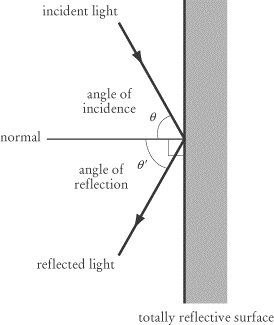
Incident ray is the ray of light
that approaches the surface. Reflected ray is the ray of light that bounces off
the surface of an object.

Rough and uneven surfaces such as
cloth and wood (right) cause diffused reflection (light reflection is
scattered.
Smooth and flat surfaces such as
mirrors, glass and shinny metals (left) cause regular reflection (light
reflected regularly).
Application of reflection of light
in daily life
Plane mirrors are used in bathrooms
or bedrooms. Side mirrors and rear-view mirrors are used in cars. Convex
mirrors give wider scope of view and used as security mirrors in shop and
fish-eye mirrors at road bends. Concave mirrors magnify images and are used in microscopes and telescopes.
Periscopes are used to see above the water surface in submarines. A periscope
consists of two plane mirror and change the direction of light. Kaleidoscopes
form colourful images. They are made from two or more plane mirrors which
reflect the light from objects placed between the mirrors.
1. Convex mirror used in a supermarket
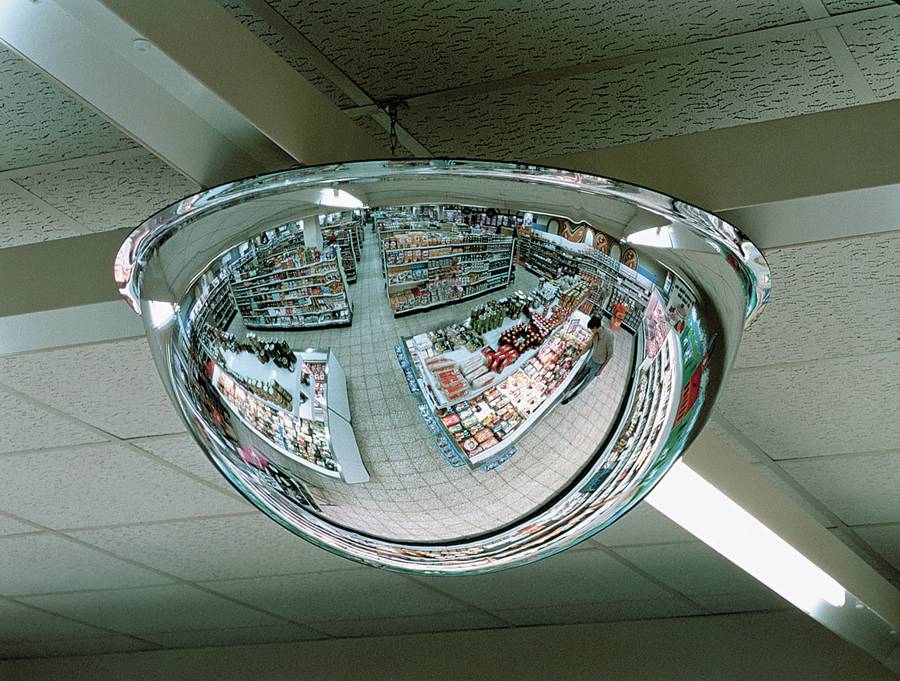
2. Kaleidoscopes for kids
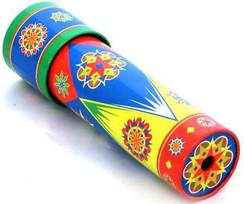
3. View of pattern inside kaleidoscopes
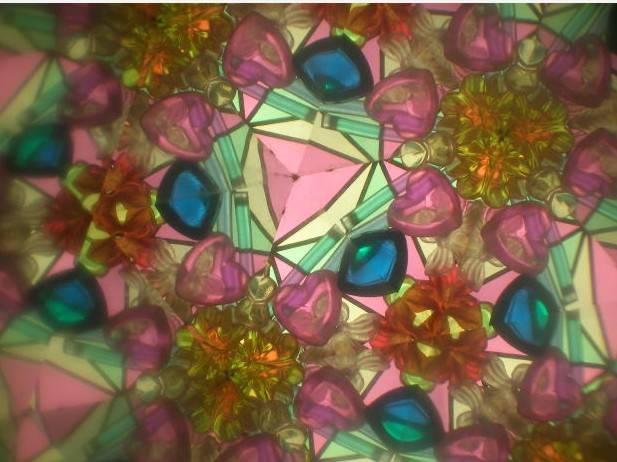
REFRACTION OF LIGHT
Light can travel through transparent
media such as air, water and glass. Light travels at different speeds in
different media. When light travels from one medium into another, the change in
the speed of light causes the light to bend or change direction. Therefraction
of light is the bending of light as light travels through two types of media
that have different densities (optical density).The speed of light increases
when light enters a less dense medium meanwhile the speed of light decreases
when light enters a denser medium. Refraction of light does not occur when the
light ray is directly perpendicular to the surface of the medium (the light
travel into the medium in the direction of the normal line), the light will
pass through the medium in a straight line.
The refraction of light ray
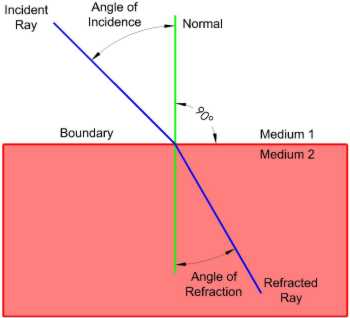
Phenomenon of refraction of light. The pencil which is in water appear bended to the observer.
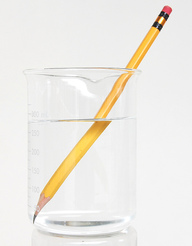
Phenomenon of refraction of light. Scuba diver appear closer to the observer when it is in the water.
 RSS Feed
RSS Feed Twitter
Twitter 11:43 PM
11:43 PM
 Unknown
Unknown
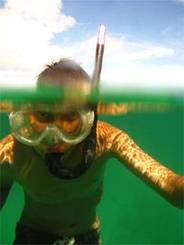



0 komentar:
Posting Komentar